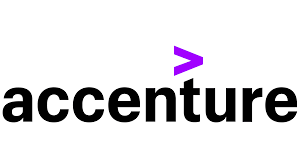
➢ A Talend Data Integration certified professional having around 10 years of professional
experience in IT, experienced with different roles in past like ETL Lead Engineer,Architect,Corporate Trainer.
➢ Experience of working in various cutting edge ETL Tools like Informatica,Datastage,Talend Data Integration with immense knowledge
in DataWarehousing and Business intelligence applications.
➢ Vast experience of working in various integration and migration projects with heterogeneous files source and target systems like MYSQL,Oracle,Postgres,
MongoDB,Hadoop ecosystem for reputed clients across the globe in various Banking,Utility,Manufacturing domains.
➢ Expertise in creating Talend jobs with proper Auditing, Error Handling and Data Processing Frameworks will all industry standards.
➢ Experience in designing a ETL layer solution for Indutries Digital Transaformation.
Experience in translating business requirements to project design,developemnt and execution.
➢ Exposure on pocessing Complex XMLs,Jsons and REST API’s.
➢ Good experience in Optimizing and Automating the repeated tasks using Talend ETL jobs and adding value to the client.
➢ Vastly experienced in carrying out Talend Training program for Corporates and provided lot of online trainings courses on Talend.
I always ensure my knowledge and experience help my students understand the concepts from the basics with real-world scenarios
and help them in their career to implement in their projects.
*********************************************************************************************************************************
1. Introduction
2. Concepts and Principles of Data Integration
3. Introduction to Talend Open Studio
4. Installing Talend Open Studio DI on Windows
5. Introduction
6. Launching Talend Studio
7. MainWindow, MenuBar and ToolBar
8. Repository Panel
9. WorkSpace And Pallete Panels
10. Views And Summary Panels
11. Designing a Simple Job
12. Introduction
13. What is a Business Model ?
14. How to Create a Business Model ?
15. What are the different types of shapes and How are they Used ?
16. What are Different Relationship Types in a Business Model ?
17. Deep Dive into Business Model View
18. How to Assign any Repository Object to A Business Model ?
19. How to Edit a Business Model ?
20. Introduction
21. What is Metadata ?
22. Creating Metadata For a Delimited File
23. Creating Metadata For a Positional File
24. Creating Metadata For a Regex File
24. Creating Metadata For a XML File
25. Creating Metadata For an Excel File
26. Creating Metadata For a LDIF File
27. Creating Metadata For a Json File
28. Creating Generic Schema
29. Creating Metadata For a Web Service
30. Creating a Database Connection
31. Create Builtin Schema
32. Create Generic Schema
33. Make Changes to Repository Schema and Propagate Changes
34.Create Database Connection & Retrieve Schema
35. Introduction
36. What are Context Variables ?
37. Creating a context group
38. How to apply context variables to a Job
39. How to Load context Values Dynamically from a flow or File or Database ?
40. Using implicit context loading to load contexts
41. How to Use Studio global variables
42. How to Create User defined global variables
43. Using tSetGlobalVar to create Global Variable
44.Creating a Context and Create a globalMap Value Using tJava
45.Creating a User Defined Global Variable and Pass it as a parameter
46. Introduction
47. What is a Job Design ?
48. How to Create a Job ?
49. How to Design a Talend Job ?
50. How to Link different Components ?
51. How to Define Component Properties ?
52. How to Use Contexts and Variables in a Job ?
53. How to optimize Job Performance ?
54. Introduction
55. How to Import/Export Items and Build Jobs ?
56. How to Manage Repository Items ?
57. How to Document a Job ?
58. How to Handle Job Execution ?
59. Introduction
60. How to Read Data From an Apache Log File ?
61. How to Read Data From an ARFF File ?
62. How to Read Data From a Delimited File ?
63. How to Read Data From an Excel File ?
64. How to Read Data Complete Row as a Column From a File ?
65. How to Read Data From a JSON File ?
66. How to Read Data From a LDIF File ?
67. How to Read Data From an Email File?
68. How to Read Data From a Multi Structured Delimited File ?
69. How to Read Data From a Positional File ?
70. How to Read Data From a Multi Structured Positional File ?
71. How to Read Data From a XML File ?
72. How to Read Data From a Multi Structured XML File ?
73. How to Read Data From a Properties File ?
74. How to Read all the content of a file and Send it to a Single column ?
75. How to Read Data From a Regex File ?
76. How to Write Data To an ARFF File ?
77. How to Write Data To a Delimited File ?
78. How to Write Data To an Excel File ?
79. How to Write Data To a JSON File ?
80. How to Write Data To a LDIF File ?
81. How to Write Data To a Multi Structured Delimited File ?
82. How to Write Data To a Positional File ?
83. How to Write Data To a Multi Structured Positional File ?
84. How to Write Data To a XML File ?
85. How to Write Data To a Multi Structured XML File ?
86. How to Write Data To a Properties File ?
87. How to Handle Single Column Output Data ?
88. How to Change Rows into Columns ?
89. How to Change Encoding of a File ?
90. How to Create a Temporary File ?
91. How to Archive a File ?
92. How to Compare Two Files ?
93. How to Copy Files ?
94. How to Delete a File ?
95. How to Check whether a File Exist or not ?
96. How to List files in a Directory ?
97. How to find properties of a File ?
98. How to Count the rows in a File ?
99. How to Touch a File ?
100. How to UnArchive or UnZip a File ?
101.Read From a Delimited File and Capture Rejects
102.Read Multiple Files Using tFileList and Append to a Single File
103. Introduction
104. How to Find Location Name Using an IP Address ?
105. How to write Data to Buffer and How to Read Data written to Buffer ?
106. How to Dump Current Jobs contexts to a file or Database ?
107. How to Generate a Fixed Flow using context Variables or internal Variables ?
108. How to memorize incog data in a row by row sequence ?
109. How to create a dialog box ?
110. How to Generate data for testing purposes ?
111. How to validate the connection status of a Host ?
112.Create a Job to make a File With Header,Trailer and Detail Record
113. Introduction
114. How to Write an Assertive Statement to Evaluate The Status of Job Execution ?
115. How to Catch Assertive Logs generated by tAssert ?
116. How to Measure the processing time of one or more Subjobs ?
117. How to Measure Processing Time of a SubJob from start to a Point ?
118. How to Kill a job and throw an error ?
119. How to Count the rows processed in a flow ?
120. How to Fetch messages from tDie and tWarn Components ?
121. How to Monitor Data processed in the Run Console ?
122. How to Gather Job Processing Metadata at Job level and Component Level ?
123. How to Trigger a Warning ?
124.Kill a Job If Rejects are Found
125.Generate Data and Append Data to a File
126. Process a File based on its Control File
127. Introduction
128. How to iterate input Data and Generate Global Variables ?
129. How to Iterate a Data Flow ?
130. How to Transform a List into a Data Flow ?
131. How to Trigger a task After the Execution of a Job ?
132. How to Trigger a task Before the Execution of a Job ?
133. How to Replicate incog Data into Multiple Output flows ?
134. How to Add a job inside another Job ?
135. How to implement a Sleep in a Job Execution ?
136. How to Merge Data from various sources with Same schema ?
137. How to Wait for a File and Trigger the next process once the File Arrives ?
138. How to Trigger a Subjob based on Insert/Delete of rows on a table ?
139.Sequence Jobs
140. If Child Job Dies (Use tDie) Trigger Job1 else Job2 in Parent Job
141. Introduction
142. How to create a Temporary Environment Variable ?
143. How to Execute one or more System Commands ?
144. Introduction
145. How to Create an FTP Connection ?
146. How to delete files Via FTP ?
147. How to Check if a File Exists on a Remote Server Via FTP ?
148. How to Find Properties of a File on a Remote Server Via FTP ?
149. How to Get selected Files from a Remote Server Via FTP ?
150. How to Put selected Files on a Remote Server Via FTP ?
151. How to Rename Selected Files on a Remote Server Via FTP ?
152. How to Truncate Selected Files on a Remote Server Via FTP ?
153. How to List Files on a remote Server based on a pattern Via FTP ?
154. How to List Files on a Remote Server based on a pattern Via SCP ?
155. How to Create an SCP Connection ?
156. How to Check if a File Exists on a Remote Server Via SCP ?
157. How to delete files Via SCP ?
158. How to Get selected Files from a Remote Server Via SCP ?
159. How to Put selected Files on a Remote Server Via SCP ?
160. How to Rename Selected Files on a Remote Server Via SCP ?
161. How to Truncate Selected Files on a Remote Server Via SCP ?
162. How to Retrieve a File Via a defined Protocol (http,https,ftp,smb) ?
163. How to Send an HTTP Request to a Server and Get its Response ?
164. How to Send an HTTP Request to a REST Web Service and Get its Response?
165. How to Read RSS Feeds using URLs?
166. How to Send Emails and Attachments?
167. Introduction
168. How to Create a Mysql Connection in a Job?
169. How to Close a Mysql Connection ?
170. How and When to Use tMysqlBulkExec ?
171. How to List All Column in a Mysql table ?
172. How to Extract Fields based on a Query from Mysql ?
173. How to Insert, Update Make changes in a Mysql Database ?
174. How to Commit data written to Mysql Tables in one go, instead of row by row ?
175. How and When to Use tMysqlOutputBulkExec ?
176. How to Rollback a Transaction in Mysql ?
177. How and When to Use tMysqlRow ?
178. How to List Mysql tables Based On a Where Clause ?
179. Read from DataBase Table and Print The Read Query to Console
180. Implement Insert or Update Action on Data
181. Delete Data from Table in Database
182. Update Only Specific Fields during update action
183. Capture Rejects while Inserting Data in a Table
184. Do a Schema Compliance Check
185. Read a Delimited File and Use tXMLMap to create an XML Document
186. Create a Basic XML File with Row Tag and Root Tag
187. Create an XML File With Attributes and Elements
188. Introduction to SCD
189. Implementing SCD using Talend SCD Component
190. Implementing SCD without using Talend SCD Component
191. How to do Type Conversions Using tMap ?
192. How to do FullOuterJoin & RightOuterJoin using tMap in Talend ?
**********************************************************************************************************************
Talend is an open-source data integration platform. Talend Online Training supplies various software and service for data integration, data management, enterprise application integration, data quality, and big data. This came into the market first in 2005. It is considered to be the next-generation leader in the cloud and significant data integration software. It helps organizations to make real-time decisions and become driven by data. With the help of this technology, data becomes more accessible, and it helps to enhance the quality of data. Talend automates tasks and maintains them for the organization. In modern times, the IT landscape is very complex. It comprises enterprise resource planning, customer relationship management, finance warehousing, etc.; the real-time nature of the business these days and the rapid pace of the changes in the business add to the need to have a set of tools and skills that makes the integrating systems of the organization quick and simple. The Talend ETL’S open-source approach shatters the traditional proprietary model by providing creative and strong software solutions with the flexibility to meet the requirements of the enterprise. Many institutions offer online courses in Talend. One of the best institutes of Online Talend training is Klabs IT.
Klabs IT is one of the best software institutes for software courses. It offers a variety of courses which are trending in modern times. This institution offers one of the best courses in Talend. The students who want to opt for the Talend course can learn it from highly experienced trainers who have more than ten years of experience. This institute also has the facility to register for free classes. The students who want to check about the course can opt for the demo classes before they join the Talend online course. This facility helps the students to know about the teaching procedure and gives them a brief idea about the course.
The students who opt for the Talend training have great scope in the future. The Talend developer has the highest salary and can earn 9.2 lakhs per year. In modern times, in the market, Talend developers and Talend admins are critical skilled jobs that are in high demand. There are many job openings and career opportunities for the students who learn Talend from the best institutes.
Klabs IT offers placement to the students who complete the training successfully. The students who join the training learn from highly skilled and knowledgeable professionals. The students undergo detailed training and get daily practice for four hours. They are also trained by providing live assignments and projects. These assignments and projects help the students to gain high knowledge about the course. After the students are trained, they are asked to prepare resumes. After the resumes are ready, the students are offered jobs.
The students are provided with certificates after they complete the online training course in Talend. This certificate holds great value for the students, and it also helps them to boost their resumes and also helps them to get an advantage when they go for any job interviews.
KLabs IT is the best software training institute in Bangalore. We provide trending software courses like Data Science, RPA, Mulesoft Talend, and more. Register for FREE Classes on our site for more information.
Speak to our trainer regarding Enquiry, Career, Domain change, and any other questions.
We are happy to help you !!! Contact us











